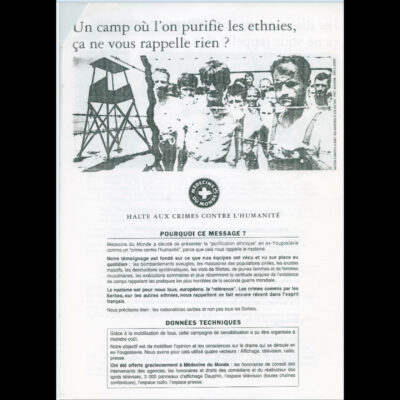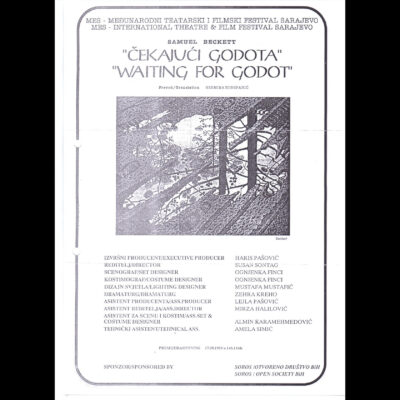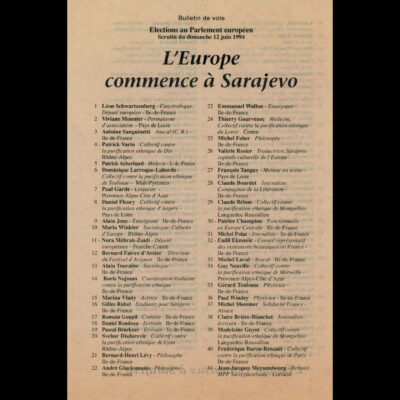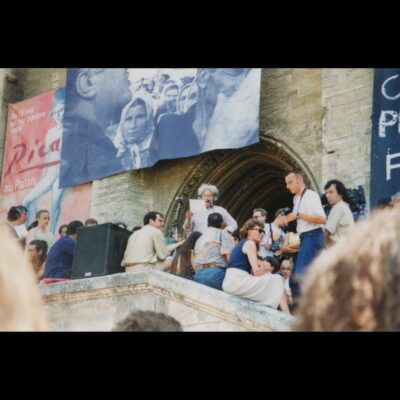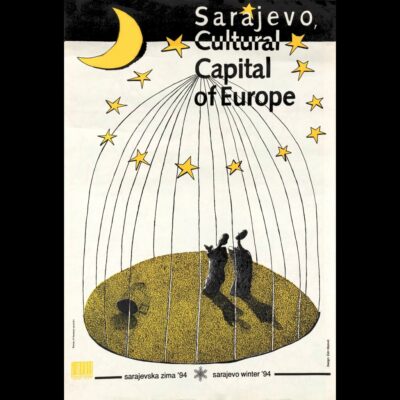| How to act |
Culture, Visits |
|---|---|
| Solidarity Map |
France, Le Mans |
| Chronology |
1993 |
Theatre du Radeau
Within the support and solidarity mobilisations for Bosnia and Herzegovina, theater companies in different European countries have played a very active role. One of the most committed ones was the “Theatre du Radeau” directed by Francois Tanguy, which was the centerpiece of the cultural space “La Fonderie” in Le Mans (Western France). Le Radeau mobilised other theaters in France and in Europe to participate in solidarity initiatives with Bosnia and Herzegovina, for example through the campaign to proclaim “Sarajevo Cultural Capital Europe”. Francois Tanguy went several times to Sarajevo during the siege, for example in summer 1994 in order to perform with his company the piece “Chorales”, freely inspired by the writings of Franz Kafka. He was also one of the candidates on the “Europe starts in Sarajevo”-list for the 1994 European Parliament elections and, in August 1995, one of the 5 cultural actors who took part in the hunger strike following the Avignon Declaration.
The Radeau theatre and “La Fonderie” organized and hosted also different activities in their own space, for example in october 1993 the three days encounter “Destruction of the image / image of destruction”, with intellectuals, artists and philosophers from former Yugsolavia and France. The gathering took place on the initiative of Dunja Blazević and Rada Iveković and was defined as “a tribute to Sarajevo”, as Rada Iveković explained in her introductory speech: “We are here together, in France, because we can no longer meet in the Yugoslav space, in the Yugoslav countries, and because we exist.We have dedicated this meeting to Sarajevo because Sarajevo is the symbol of this melting pot, of this cultural mix which is at the origin of our suffering. We are here, equally, I think, French, Yugoslav or Post-Yugoslav, because we feel morally or emotionally Bosnian. In speaking of Sarajevo, which has been bombed by Serbs for more than a year, we do not want to forget or diminish the suffering of those who, in other cities such as Mostar, and in other regions, are victims of certain Croats. Or of others. (…) We are here to say no, in culture, to ethnic, ideological and intellectual cleansing.”



